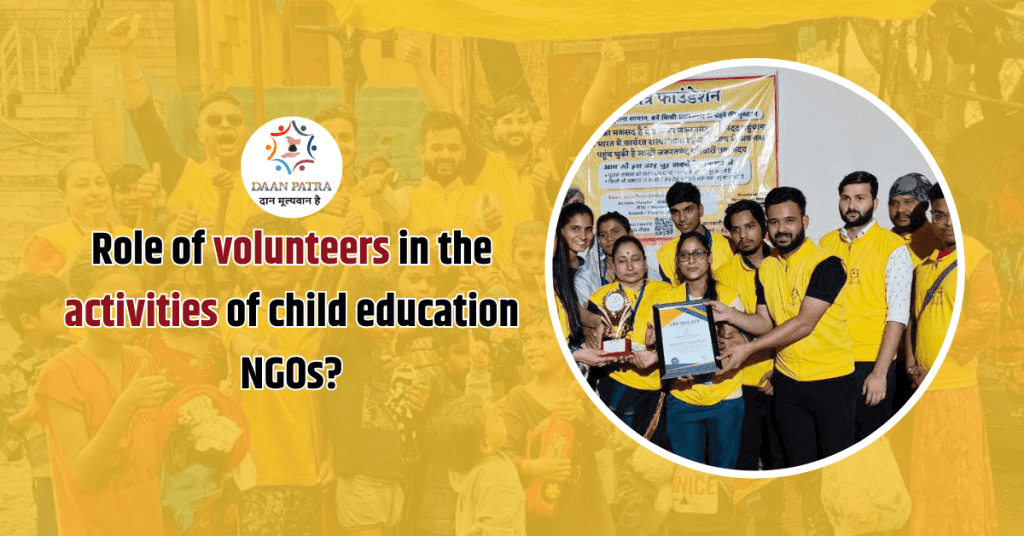In the period of social change, child education NGOs are a cornerstone, and volunteers are the mortar that binds it together. These dedicated individuals bring not just time and effort, but passion, skills, and diverse perspectives to enrich the lives of underprivileged children. Their contributions go far beyond the classroom, playing a crucial role in every facet of an NGO’s operations and we can also contribute it with online donations.
A) Bridging the Learning Gap:
- Tutoring and Academic Support: Volunteer teachers provide individual attention and support to children who may struggle in traditional classrooms. They cater to diverse learning styles, fill knowledge gaps, and ignite a love for learning.
- Skill Development and Enrichment: Beyond academics, volunteers teach valuable life skills, like computer literacy, communication, and creative expression. They organize workshops, field trips, and extracurricular activities, fostering well-rounded development.
- Mentorship and Role Models: Volunteers become trusted confidantes and role models for children, offering guidance and inspiration. They share their own journeys, encourage children to dream big, and empower them to overcome challenges.
B) Fueling the Engine of Impact:
- Fundraising and Resource Mobilization: Volunteers dedicate their energy to securing funds, donations, and essential resources for the NGO’s programs. They advocate for the cause, organize events, and connect the NGO with potential donors.
- Administrative Support and Operations: Many volunteers lend their expertise in administration, finance, marketing, and technology. They streamline operations, maintain records, and ensure the smooth functioning of the NGO’s activities.
- Community Engagement and Advocacy: Volunteers act as bridges between the NGO and the community. They raise awareness about educational inequalities, involve parents and local stakeholders, and advocate for better education policies.
C) The Ripple Effect of Volunteerism:
The impact of volunteers extends far beyond their immediate tasks. They create a vibrant learning environment, instill hope and confidence in children, and contribute to a culture of giving back. Their presence encourages other community members to get involved, creating a sustainable network of support for the NGO’s mission.
Frequently Asked Questions
1. What skills are needed to volunteer with a child education NGO?
While specific skills vary depending on the NGO’s needs, a willingness to learn, passion for education, patience, and good communication skills are crucial. Many NGOs also welcome volunteers with expertise in specific areas like teaching, art, technology, or fundraising.
2. How much time should I commit to volunteering?
The time commitment is flexible, depending on your availability and the needs of the NGO. Even volunteering a few hours a week can make a significant difference. Some NGOs offer short-term projects or virtual volunteering opportunities.
3. How can I find a child education NGO to volunteer with?
Research online directories, contact local NGOs directly, or check with your university or community center for volunteering opportunities. You can also connect with other volunteers through online forums and social media groups.


I have a great command of sophisticated language and literature because I am an artist at heart as well as a writer by profession. I am able to constantly produce work of a high quality because of my knowledge. I’m well-known for my versatility and am an excellent writer of both creative and technical content. To write content that is both entertaining and customized, I take the approach of getting to know the interests and preferences of my targeted audience.

